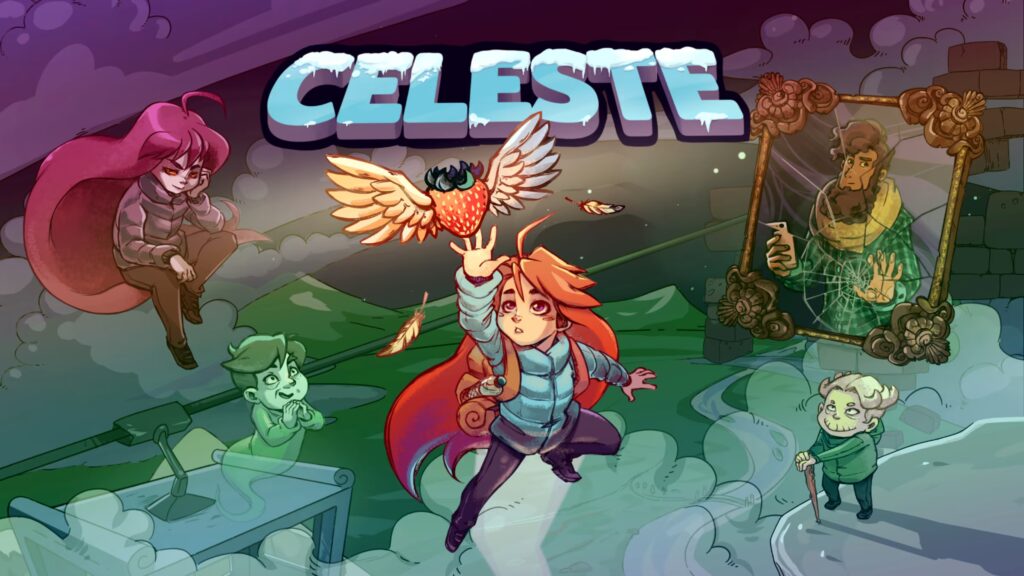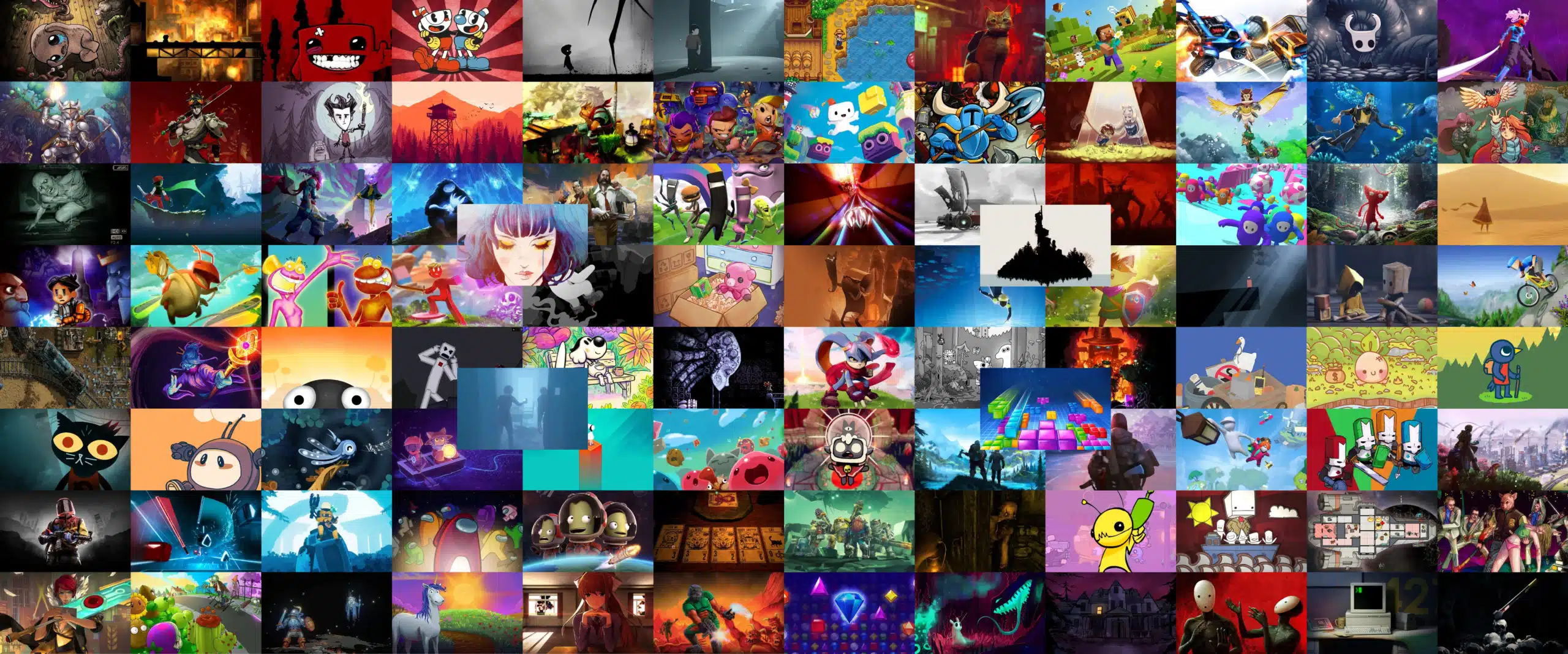Celeste

“Celeste” stands out in the platformer genre, offering more than just clever level design and challenging mechanics. It’s an emotional journey that goes beyond the typical jumping and dodging expected from such games. At the heart of “Celeste” is a narrative deeply intertwined with themes of mental health, self-discovery, and personal growth. The game’s protagonist, Madeline, embarks on a quest to climb Celeste Mountain, and this physical journey mirrors her internal struggles. Throughout her climb, players are invited to navigate both complex platforming challenges and the poignant story of Madeline’s personal battles.
From the moment you start the game, “Celeste” sets itself apart with its gorgeous pixel art style and an evocative soundtrack that enhances the emotional impact of Madeline’s story. The music, composed by Lena Raine, is not just background noise; it complements the emotional highs and lows of the narrative, drawing players deeper into Madeline’s world. Each level and track is crafted to reflect the mood of the story at that point, making the experience immersive and engaging.
The gameplay mechanics of “Celeste” are designed with precision and care, offering a perfect blend of challenge and accessibility. The controls are tight and responsive, allowing players to perform intricate maneuvers with ease once they get the hang of it. The game introduces various mechanics gradually, ensuring that players are constantly learning and adapting. With each new section of the mountain, players face unique obstacles that test their skills and patience. But what sets “Celeste” apart is its approach to failure. The game encourages players to view failure not as a setback, but as a stepping stone to success. Deaths are frequent, but they serve as a learning experience, teaching players to approach challenges with persistence and resilience.
Madeline’s journey is not just about reaching the summit; it’s about the internal struggles she faces along the way. The mountain is a metaphor for the challenges posed by anxiety, self-doubt, and depression. Throughout the game, Madeline confronts a darker version of herself, known as Badeline, representing her inner fears and insecurities. These interactions are pivotal, as Madeline learns to accept this part of herself rather than fight against it. This theme of self-acceptance is central to the game, sending a powerful message about the importance of understanding and embracing one’s own vulnerabilities.
“Celeste” also offers a rich tapestry of characters that add depth to the narrative. Theo, a fellow climber Madeline meets along her journey, provides comic relief and heartfelt moments, offering support and friendship. Their interactions bring a sense of camaraderie and highlight the importance of human connection in overcoming personal obstacles. Other characters, like the mysterious Old Woman and Mr. Oshiro, contribute to the game’s atmosphere and thematic depth, each offering their own insights into the nature of the mountain and the challenges it represents.
One of the standout features of “Celeste” is its Assist Mode, which makes the game more accessible to a wider audience. This mode allows players to modify various aspects of the gameplay, such as slowing down time or gaining invincibility, ensuring that everyone can experience Madeline’s story, regardless of their skill level. This inclusivity is a testament to the game’s dedication to delivering a meaningful narrative experience to all players.
The culmination of Madeline’s journey is a testament to the game’s narrative strength. Reaching the summit is both a literal and figurative achievement, symbolizing Madeline’s growth and acceptance of herself. As players guide her to the top, they, too, experience a sense of fulfillment and triumph. “Celeste” leaves a lasting impression, reminding players that while the climb may be difficult, the journey is worth it. With its masterful blend of storytelling, challenging gameplay, and a powerful message about mental health, “Celeste” is a game that resonates on many levels, offering an experience that lingers long after the final credits roll.
Advertisement
